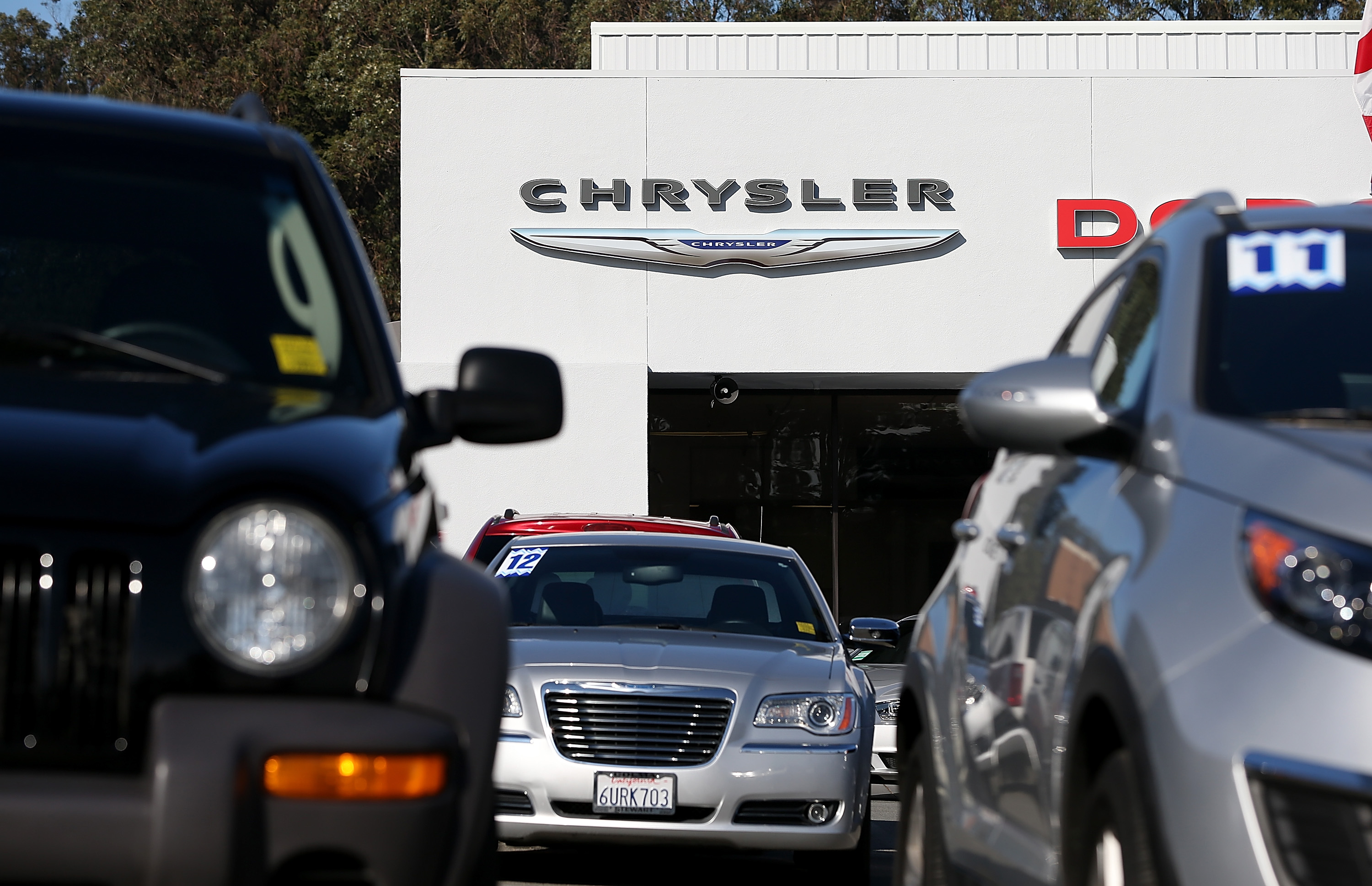Carmakers relieved as US reaches trade deal with Canada
Shares of US automakers rallied after the US, Canada and Mexico reached a new trade agreement (JUSTIN SULLIVAN)
New York (AFP) – North American carmakers and auto parts companies breathed a sigh of relief on Monday after the United States and Canada signed off on a new trade deal with Mexico.
The agreement, which includes new regional requirements on auto parts and wage levels, removes a giant question mark that has crimped industry investment since US President Donald Trump took office in January 2017 and swiftly began challenging the international trade order.
“At least now we know, the industry has been in a state of flux for the last 18 months,” said Charlie Chesbrough, senior economist at Cox Automotive.
Auto companies “are at least going to be able to make the long-term strategic planning on parts,” Chesbrough added.
The agreement ends worries that a draconian crackdown by Trump would force closures of auto plants built in Mexico by US companies since the North American Free Trade Agreement took effect in 1994.
The Alliance of Auto Manufacturers welcomed the news, calling Canada’s inclusion “an encouraging development” and saying all three countries were needed “to realize the benefits and goals of a new pact.”
Shares of US automakers rallied. Ford, General Motors and Fiat Chrysler all won at least one percent. Some auto parts companies also advanced, such as Michigan-based Lear, which was up 2.9 percent at midday, and Ontario, Canada-based Magna International, which jumped 4.5 percent.
Analysts varied Monday on the extent that the trade deal will lead to greater regionalization in the auto industry or boost US auto manufacturing.
Trump from the start has harped on what he said was NAFTA’s harm to American auto manufacturing and workers, and vowed to undo a deal that had been associated with shuttered factories in states like Michigan and Ohio that narrowly helped him win the White House.
“We will be manufacturing many more cars and our companies won’t be leaving the US and firing their workers,” Trump said Monday. “Those days are over.”
The key provisions in the new deal affecting autos require that 75 percent of auto content be made in North America, up from the old 62.5 percent benchmark.
The countries are also required to have 40-45 percent of their auto content made by workers who make at least $16 per hour, a measure that aims to end more job drainage to Mexico from the US.
And — should the administration move to slap duties on the hundreds of billions of dollars in foreign-made vehicles Americans buy annually — Canada and Mexico will be exempt up to a threshold of 2.6 million autos per year.
But the agreement does not have any bearing on Trump’s tariffs on steel and aluminum that have touched off battles with US trading partners, including Canada and Mexico.
Negotiations continue on possibly removing these tariffs, which Washington has insisted be kept separate from the NAFTA rewrite.
– Greater regionalization? –
Garrett Nelson, a senior equity analyst at CFRA Research, said Sunday’s agreement addressed a “huge overhang” facing the industry, even though the steel and aluminum tariffs were still a burden.
While the deal does not go into effect until 2020, Nelson predicted it could lead to a meaningful repositioning of auto jobs and the sourcing of parts.
“You’re going to see more regionalization of auto parts production,” Nelson predicted.
“You’re going to see more production stay within North American than before and less being sourced from places like China and I would expect those other regions to become more regionalized and less globalized.”
This change “probably creates some near-term supply chain issues, but I think the companies are looking at the economics,” he said.
But Chesbrough expects the changes to be “fairly minor” as far as remaking the North American auto footprint.
And economist Mary Lovely of Syracuse University questions whether the measures will be very effective in achieving Trump’s stated goals.
“It’s difficult to see now whether this will increase the amount of production done in the US at all, or whether it will increase the number of jobs or the number of jobs paying $16 an hour,” she told AFP.
“It clearly raises costs for the industry,” and moves towards a system of managed trade in autos, “which means only one thing which is higher prices.”
Chesbrough also does not expect Mexico to lose many auto jobs, in part because of myriad trade agreements the country has with other nations besides the United States.
Disclaimer: This story has not been edited by Siliconeer and is published from a syndicated feed. Siliconeer does not assume any liability for the above story. Validity of the above story is for 7 Days from original date of publishing. Content copyright AFP.


